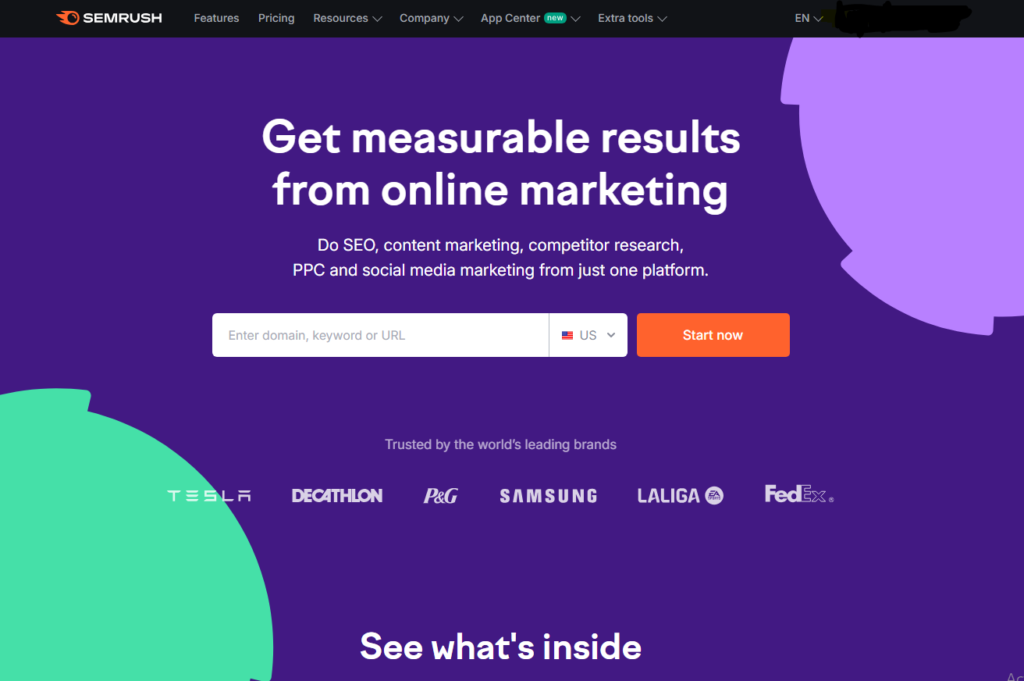
Let’s face it: in the wild world of the internet, it’s easy for a website to get lost in the crowd. You pour your heart and soul into creating amazing content, but nobody seems to find it.
Sound familiar? You’re not alone!
But what if you knew there was a secret weapon to catapult your website to the top of search results, attracting a flood of new customers and boosting your online presence? That weapon is Search Engine Optimization (SEO). Think of it like a magic spell that transforms your website from a dusty, forgotten corner of the internet into a vibrant, bustling marketplace.
This guide will equip you with the knowledge and tools to master on-page SEO, off-page SEO, technical SEO, local SEO, keyword research, content SEO, and SEO tools, transforming your website into a search engine magnet. Ready to unlock the secrets to digital success? Let’s dive in!
TL;DR
- Boost your website’s visibility and attract more customers? This guide will show you how.
- Master SEO techniques to dominate search results.
- Optimize your website content to make it irresistible to search engines.
- Build valuable backlinks to increase your website’s authority and trust.
- Fix technical issues that could be preventing your website from ranking well.
- Learn about keyword research, content strategy, and SEO tools to help you achieve your goals.
- Drive more traffic, leads, and sales to your website.
On-Page SEO: Optimizing Your Website’s Content
Ever feel like your website is just a ghost town, a digital desert with no visitors?
You’ve poured your heart and soul into crafting a website that’s a masterpiece, a digital story waiting to be told.
But how do you make sure it gets read?
That’s where on-page SEO comes in. It’s like giving your website a makeover, making it irresistible to search engines and users alike, so they can discover your amazing content.
Think of it this way: on-page SEO is about optimizing every single element of your website, from the words you use to the way your code is structured. It’s about making sure your website is relevant, engaging, and easy to navigate, so search engines can easily understand what you’re offering and users are eager to explore your content.
Just like in this video, “What to Do Online for Money,” you need to make sure your website is clear, concise, and provides value to your audience. The video highlights various ways to make money online, but it’s organized, easy to follow, and provides valuable information. That’s the same approach you need to take with your website.
For More Free Videos, Subscribe to the Rhodes Brothers YouTube Channel.
Keyword Research: The Foundation of SEO
Keyword research is the cornerstone of any successful SEO strategy. It’s about understanding what people are searching for online and tailoring your content to meet those needs.

Here’s how to get started:
- Identify your target audience: Who are you trying to reach with your website? What are their interests, needs, and pain points?
- Brainstorm relevant keywords: Think about the terms people would use to find your website or products. For example, if you sell handmade jewelry, you might consider keywords like “handmade jewelry,” “custom jewelry,” or “personalized jewelry.”
- Use keyword research tools: Tools like Google Keyword Planner, Ahrefs, SEMrush, and Moz Keyword Explorer can help you find high-volume, low-competition keywords that are relevant to your target audience.
- Analyze your competitors: See what keywords your competitors are ranking for and try to find opportunities to outrank them.
- Prioritize your keywords: Focus on a few key keywords that are most relevant to your business and target audience.
Optimizing Your Website Content for Search Engines
Once you have a list of target keywords, it’s time to optimize your website content to rank higher in search results.
Here are some key on-page SEO strategies:
- Use your target keywords naturally throughout your content: Don’t stuff your content with keywords, but use them strategically in your headings, subheadings, body text, and meta descriptions.
- Write high-quality, engaging content: Google prioritizes websites with valuable, informative, and user-friendly content.
- Optimize your headings and subheadings: Use clear, concise headings and subheadings that include your target keywords.
- Optimize your images: Use descriptive file names and alt text that includes your target keywords.
- Build internal links: Link to other relevant pages on your website to improve user experience and signal to search engines that your website is well-structured.
Example: Optimizing a Blog Post for “Handmade Jewelry”
Let’s say you’re writing a blog post about “handmade jewelry.” Here’s how you might optimize it for on-page SEO:
- Title: “Handmade Jewelry: A Guide to Finding Unique and Personalized Pieces”
- Heading 1: “Handmade Jewelry: The Art of Uniqueness”
- Heading 2: “Types of Handmade Jewelry”
- Body Text: “If you’re looking for a unique and personalized gift, handmade jewelry is the perfect choice. From delicate earrings to statement necklaces, there’s a handmade piece for everyone.”
- Image Alt Text: “A close-up of a beautiful handmade necklace with intricate details.”
Off-Page SEO
Off-page SEO is about building credibility and trust for your website in the eyes of search engines. It’s about getting other websites to link to yours, which signals to Google that your website is valuable and trustworthy.
Backlinks: The Power of External Votes
Backlinks are links from other websites to your website. They are like votes of confidence from other websites, telling Google that your website is worth visiting.
Here are some ways to get backlinks:
- Guest blogging: Write guest posts for other websites in your industry.
- Create high-quality content: Create valuable content that people want to share and link to.
- Participate in online communities: Engage in forums, social media groups, and other online communities related to your industry.
- Reach out to influencers: Contact influencers in your niche and ask them to share your content or link to your website.
Building Relationships and Earning Trust
Remember, building backlinks is not just about quantity; it’s also about quality. Focus on earning backlinks from reputable websites that are relevant to your industry.
Here are some tips for building relationships and earning trust:
- Be genuine and authentic: Don’t just try to get backlinks for the sake of getting backlinks. Build relationships with other website owners and bloggers.
- Provide value: Offer something valuable in return for a backlink, such as a guest post, an interview, or a social media shoutout.
- Be patient: Building backlinks takes time and effort. Don’t expect to see results overnight.
Technical SEO
Technical SEO is about ensuring that your website is technically sound and accessible to search engines. It’s about fixing any technical issues that could be preventing your website from ranking well.
Website Speed: A Crucial Factor
Website speed is a critical factor in SEO. Google prioritizes websites that load quickly because users expect a fast and seamless online experience.
Here are some tips for improving your website speed:
- Optimize your images: Use smaller image files and compress your images without losing quality.
- Minimize HTTP requests: Reduce the number of files that need to be downloaded to load your website.
- Use a content delivery network (CDN): A CDN can help deliver your website content faster to users around the world.
Mobile-Friendliness: A Must-Have
Mobile-friendliness is another essential aspect of technical SEO. With more people browsing the internet on their smartphones and tablets, it’s crucial to ensure that your website is optimized for mobile devices.
Here are some tips for making your website mobile-friendly:
- Use a responsive design: Your website should adapt to different screen sizes.
- Avoid pop-ups and interstitials: These can be disruptive on mobile devices.
- Make sure your website is easy to navigate on mobile: Use large buttons and clear navigation menus.
Local SEO
Local SEO is about optimizing your website for local searches. If you have a brick-and-mortar business, local SEO can help you attract customers in your area.
Google My Business: Your Local Hub
Google My Business (GMB) is a free tool that allows you to manage your online presence on Google Search and Maps. It’s essential for local SEO.
Here’s how to optimize your GMB listing:
- Claim your business listing: Make sure your business is listed on GMB and that your information is up-to-date.
- Add photos and videos: Use high-quality photos and videos to showcase your business.
- Encourage reviews: Ask your customers to leave reviews on your GMB listing.
- Respond to reviews: Respond to both positive and negative reviews to show that you care about your customers.
Local Citations: Building Your Online Reputation
Local citations are mentions of your business name, address, and phone number (NAP) on other websites. They help search engines understand your business location and improve your local SEO ranking.
Here are some ways to get local citations:
- List your business on online directories: Websites like Yelp, TripAdvisor, and Yellow Pages.
- Submit your business to local chambers of commerce and business associations.
- Get listed on industry-specific websites.
Content SEO
Content SEO is about creating high-quality, engaging content that attracts and retains users. It’s about understanding your target audience and providing them with the information they need.
Creating Valuable Content
Here are some tips for creating valuable content:
- Focus on your target audience: What are their interests, needs, and pain points?
- Create content that is relevant and informative: Provide your audience with valuable information that they can use.
- Use a variety of content formats: Include blog posts, articles, videos, infographics, and other content formats.
- Promote your content: Share your content on social media, email, and other channels.
Content Strategy
A content strategy is a plan for creating and distributing content that aligns with your business goals.
Here are some key elements of a content strategy:
- Define your target audience: Who are you trying to reach with your content?
- Set your content goals: What do you want to achieve with your content?
- Choose your content formats: What types of content will you create?
- Develop a content calendar: Plan your content in advance and schedule it for publication.
SEO Tools
SEO tools can help you streamline your SEO efforts and make data-driven decisions.
Keyword Research Tools
- Google Keyword Planner: A free tool that provides keyword ideas and search volume data.
- Ahrefs: A comprehensive SEO tool that offers keyword research, backlink analysis, and website auditing.
- SEMrush: A popular SEO tool that provides keyword research, competitor analysis, and content optimization tools.
- Moz Keyword Explorer: A tool that provides keyword research, search volume data, and keyword difficulty scores.
Website Auditing Tools
- Google Search Console: A free tool that provides insights into your website’s performance in Google Search.
- Screaming Frog SEO Spider: A tool that crawls your website and identifies technical SEO issues.
- Site Audit (SEMrush): A tool that provides a comprehensive website audit, including technical SEO, on-page SEO, and backlink analysis.
Backlink Analysis Tools
- Ahrefs: A powerful tool for backlink analysis, including backlink tracking, competitor analysis, and link building opportunities.
- SEMrush: A tool that provides backlink analysis, including backlink tracking, competitor analysis, and backlink quality assessment.
- Moz Link Explorer: A tool that provides backlink analysis, including backlink tracking, competitor analysis, and link building opportunities.
Other Useful SEO Tools
- Google Analytics: A free tool that provides insights into your website traffic, user behavior, and conversion rates.
- Hotjar: A tool that provides heatmaps, recordings, and surveys to understand user behavior on your website.
- Rank Math SEO: A WordPress plugin that provides on-page SEO optimization, keyword research, and content analysis.
- Yoast SEO: Another popular WordPress plugin that provides on-page SEO optimization, keyword research, and content analysis.
Frequently Asked Questions
Q: How long does it take to see results from SEO?
A: SEO takes time and effort. You may start to see results within a few months, but it can take several months to a year to see significant improvements in your website’s ranking.
Q: How much does SEO cost?
A: The cost of SEO varies depending on the scope of work, the complexity of your website, and the level of expertise required. You can do some SEO work yourself for free, but hiring an SEO agency or consultant can be more expensive.
Q: What are the most important SEO factors?
A: The most important SEO factors include keyword research, content optimization, backlink building, website speed, mobile-friendliness, and technical SEO.
Q: How do I know if my website is SEO-friendly?
A: You can use SEO tools like Google Search Console, Screaming Frog SEO Spider, and Site Audit (SEMrush) to identify technical SEO issues and areas for improvement.
Q: What are some common SEO mistakes to avoid?
A: Common SEO mistakes include keyword stuffing, building low-quality backlinks, neglecting website speed and mobile-friendliness, and not tracking your results.
Q: How can I improve my website’s ranking in Google?
A: By implementing the SEO strategies outlined in this guide, you can improve your website’s ranking in Google. Focus on creating high-quality content, building backlinks, optimizing your website for technical SEO, and tracking your results.
Q: What are some resources for learning more about SEO?
A: There are many resources available for learning more about SEO, including books, blogs, podcasts, courses, and online communities.
Q: How do I track my SEO progress?
A: Use tools like Google Analytics and Google Search Console to monitor your website traffic, keyword rankings, and other key metrics. You can also track your progress by setting specific goals and measuring your results against those goals.
Q: What are some SEO best practices for 2024?
A: Focus on creating high-quality, user-centric content, building strong backlinks from reputable websites, optimizing your website for mobile devices, and ensuring your website is fast and secure.
Q: What is the future of SEO?
A: SEO is constantly evolving, but the core principles remain the same. Focus on providing value to users, building a strong online presence, and adapting to the latest search engine algorithms.
Mastering SEO: A Continuous Journey
SEO is a dynamic field that is constantly evolving. To stay ahead of the curve, it’s important to keep up with the latest trends and best practices.
Get started today by taking the first step toward achieving your SEO goals. Whether you choose to implement these strategies yourself or seek professional help, remember that SEO is a marathon, not a sprint. Be patient, persistent, and consistent in your efforts, and you will see positive results.
This comprehensive guide will equip you with the knowledge and tools to dominate search engines. Remember, SEO is an ongoing process, so stay informed, adapt your strategies, and keep striving for excellence!
Thank you for joining us! Be sure to check out our Rhodes Brothers YouTube Channel for the latest videos and information to help you succeed.
Resource List
Books
- The Art of SEO by Eric Enge, Stephan Spencer, Jessie Stricchiola, and Rand Fishkin
- SEO for Dummies by Peter Kent
- Ecommerce SEO Mastery: 10 Huge SEO Wins For Any Online Store by Kristina Azarenko
Blogs
Podcasts
Courses
Tools
- Google Keyword Planner
- Ahrefs
- SEMrush
- Moz Keyword Explorer
- Google Search Console
- Screaming Frog SEO Spider
- Google Analytics
- Hotjar
- Rank Math SEO
- Yoast SEO
SEO Cheat Sheet
- Identify your target audience
- Brainstorm relevant keywords
- Use keyword research tools
- Analyze your competitors
- Prioritize your keywords
- Use your target keywords naturally throughout your content
- Write high-quality, engaging content
- Optimize your headings and subheadings
- Optimize your images
- Build internal links
- Guest blogging
- Create high-quality content
- Participate in online communities
- Reach out to influencers
- Optimize your images
- Minimize HTTP requests
- Use a content delivery network (CDN)
- Use a responsive design
- Avoid pop-ups and interstitials
- Make sure your website is easy to navigate on mobile
- Claim your Google My Business listing
- Add photos and videos
- Encourage reviews
- Respond to reviews
- List your business on online directories
- Submit your business to local chambers of commerce and business associations
- Get listed on industry-specific websites
- Focus on your target audience
- Create relevant and informative content
- Use a variety of content formats
- Promote your content
- Define your target audience
- Set your content goals
- Choose your content formats
- Develop a content calendar
- Keyword Research Tools
- Website Auditing Tools
- Backlink Analysis Tools
- Other Useful SEO Tools




